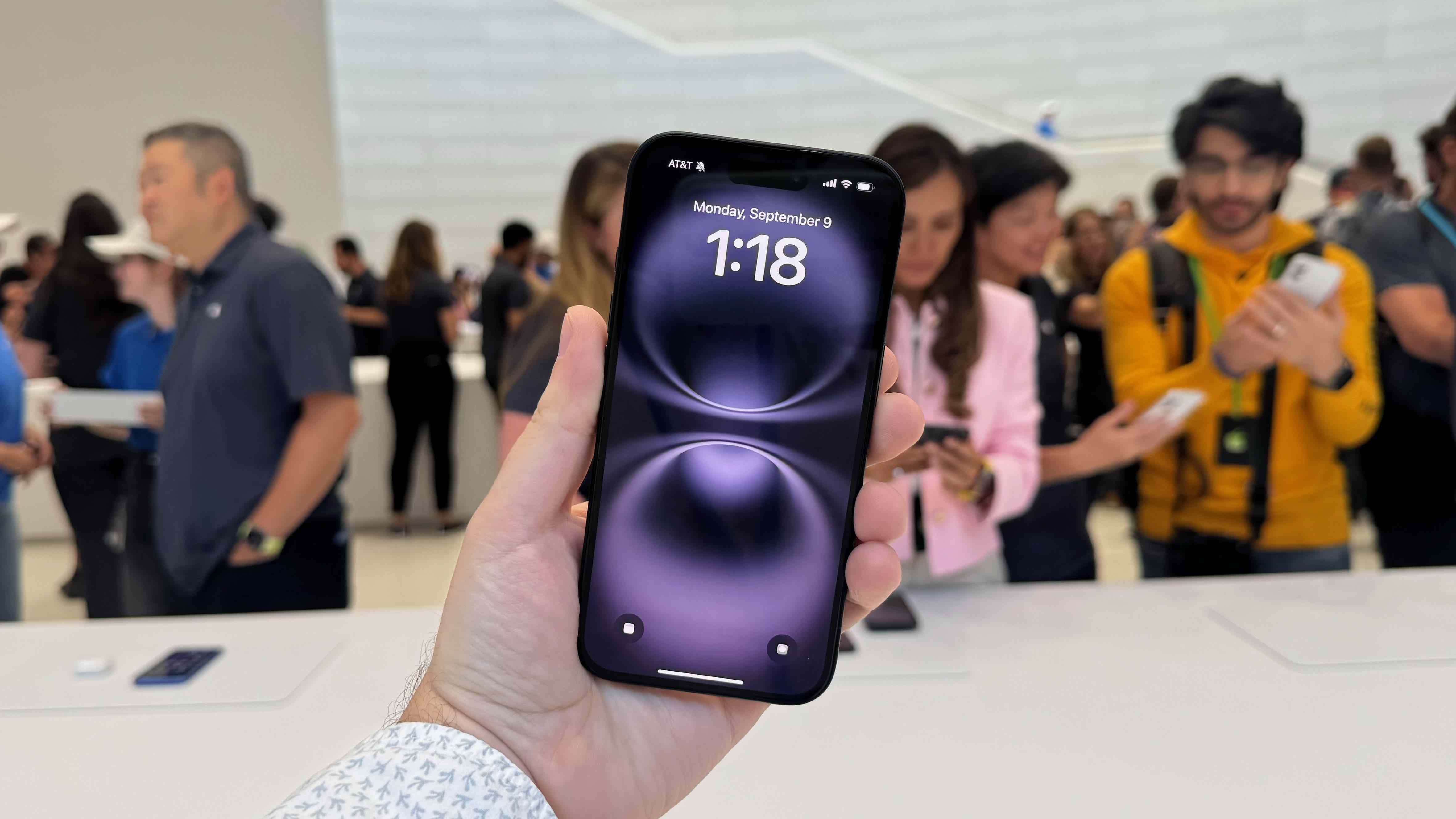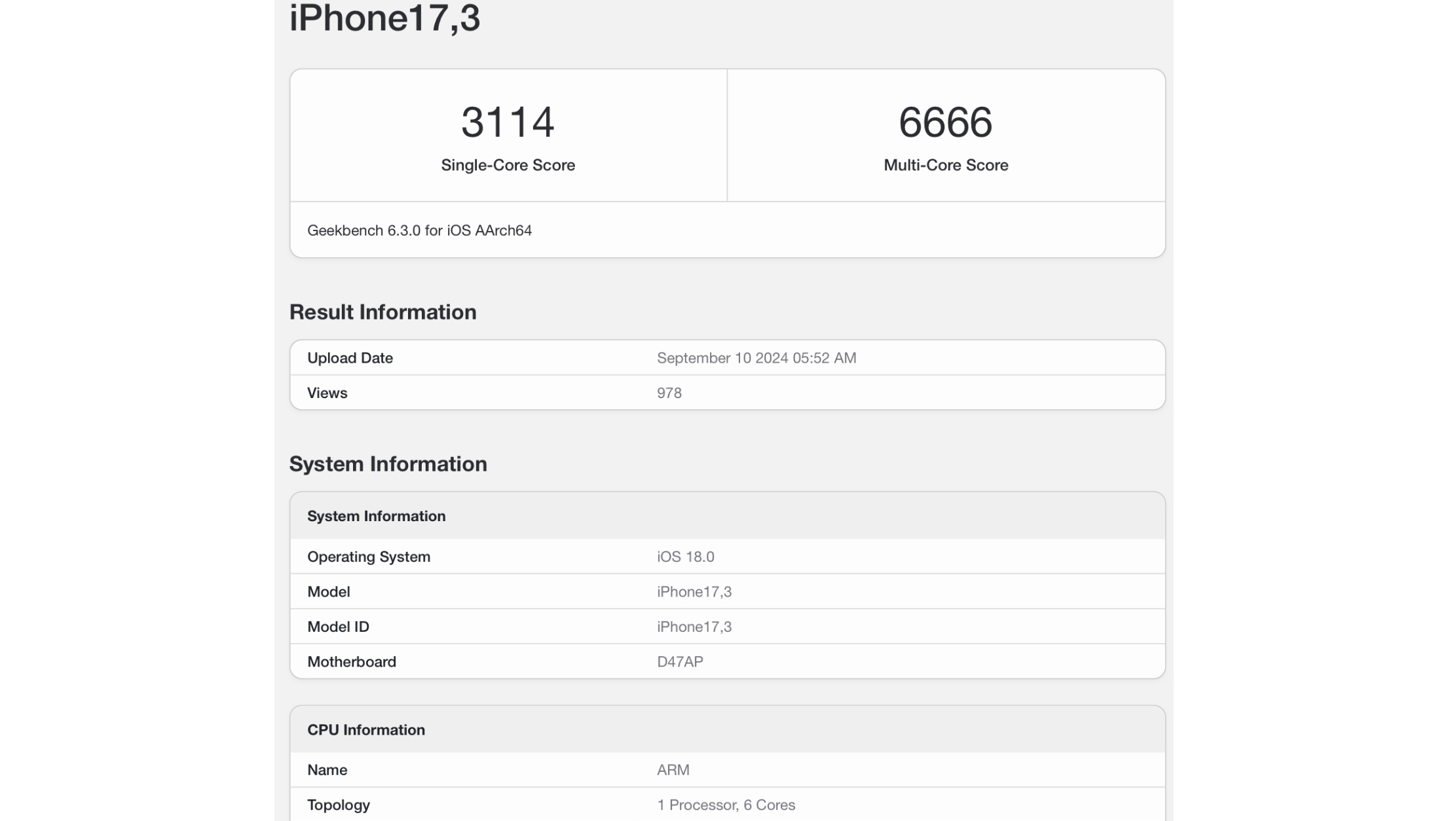The iPhone 16’s A18 chip looks to only be a small upgrade on the iPhone 15’s A16 Bionic

If you were hoping for massive performance gains from the A18 chipset in the iPhone 16, you might be out of luck, as a benchmark suggests there are only small improvements.
A Geekbench listing spotted by 9to5Mac includes a single-core result of 3,114 and a multi-core result of 6,666. This is for a phone with the identifier ‘iPhone17,3’, which is believed to be the base iPhone 16.
In any case, for comparison, the iPhone 15 has an average single-core result of 2,541 and an average multi-core of 6,325. So that would make for a reasonable upgrade this year in the single-core score but a fairly small multi-core increase.

And neither of these scores seem to match Apple’s claims for the chip, as the company has said it has a CPU that’s up to 30% faster and a GPU that’s up to 40% faster than the A16 Bionic.
And of course, the A16 Bionic is a two-year old chip. If we compare these results to the average scores of the iPhone 15 Pro and its one-year-old A17 Pro chipset, things look a lot worse, at least in terms of multi-core results.
That phone achieves an average single-core score of 2,896, so the A18 has that beat, but its multi-core average is much higher at 7,192.
Newer but maybe not better
So for most demanding tasks the A17 Pro is probably a better chipset than the A18. That’s not entirely surprising, but it does feel sneaky of Apple, as the company can highlight that the iPhone 16 has a newer chipset with a bigger number in the name, while actually it’s less impressive than the chipset launched by the company last year.
Sign up for breaking news, reviews, opinion, top tech deals, and more.
Of course, the A18 Pro used by the iPhone 16 Pro and the iPhone 16 Pro Max will likely perform a lot better, so we’ll be interested in seeing benchmarks for that. And since this is just one benchmark listing it’s possible that the scores here won’t prove representative of what the A18 is capable of. But based on this initial result it doesn’t seem like a very impressive upgrade.
You might also like
- Apple iPhone 16 event – everything Apple announced and 16 things we learned
- Hands on: iPhone 16 review – new buttons, new processor, more 'Pro'
- Hands on: iPhone 16 Pro review – max zoom without the Max name
James is a freelance phones, tablets and wearables writer and sub-editor at TechRadar. He has a love for everything ‘smart’, from watches to lights, and can often be found arguing with AI assistants or drowning in the latest apps. James also contributes to 3G.co.uk, 4G.co.uk and 5G.co.uk and has written for T3, Digital Camera World, Clarity Media and others, with work on the web, in print and on TV.